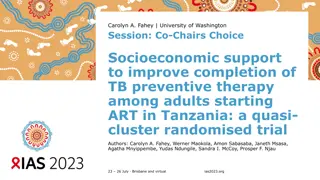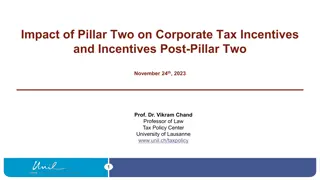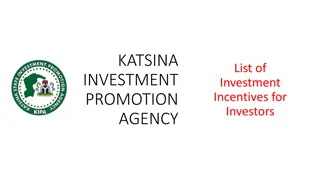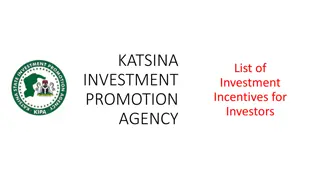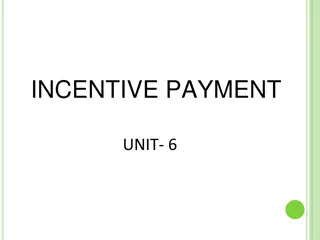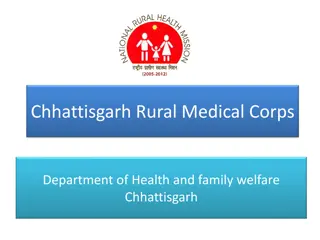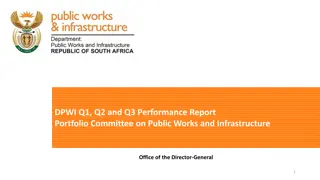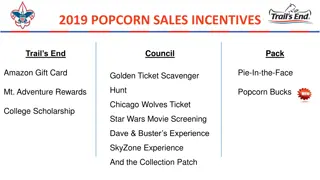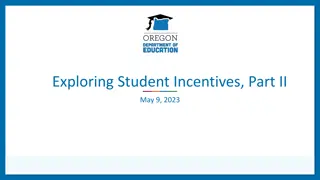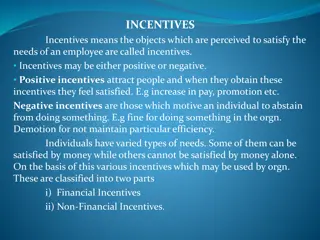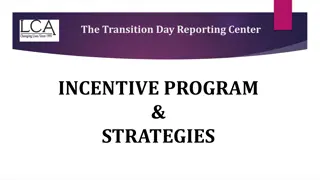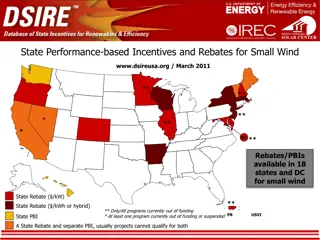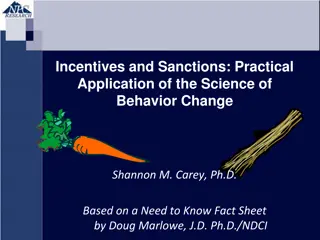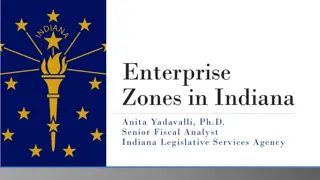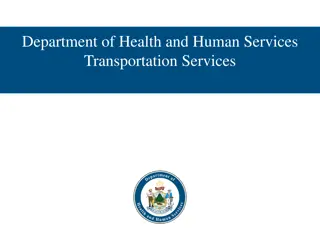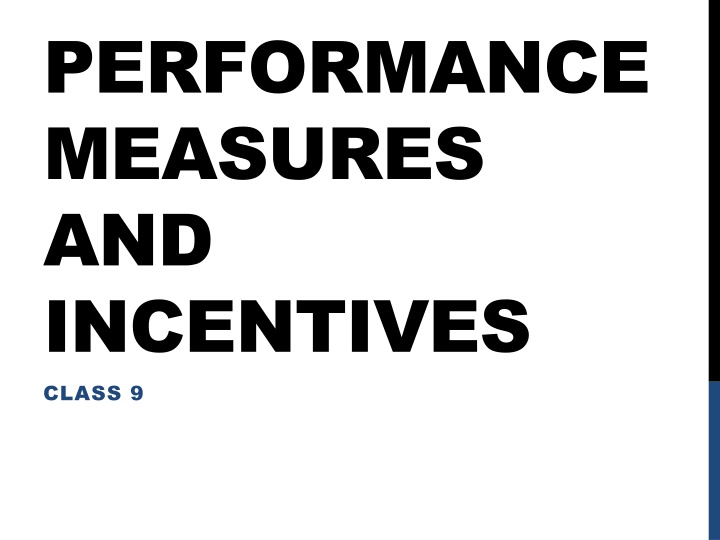
Uncovering Agency Issues in Performance Metrics
Delve into the case study of Merrill Lynch, where CEO Sam O. Neal's emphasis on outperforming competitors led to risky decisions and eventual failure. Explore the challenges of the principal-agent relationship and the effectiveness of performance-based incentives in organizations. Risky outcomes, insurance concepts, and the limitations of performance metrics are discussed in this insightful analysis.
Download Presentation

Please find below an Image/Link to download the presentation.
The content on the website is provided AS IS for your information and personal use only. It may not be sold, licensed, or shared on other websites without obtaining consent from the author. If you encounter any issues during the download, it is possible that the publisher has removed the file from their server.
You are allowed to download the files provided on this website for personal or commercial use, subject to the condition that they are used lawfully. All files are the property of their respective owners.
The content on the website is provided AS IS for your information and personal use only. It may not be sold, licensed, or shared on other websites without obtaining consent from the author.
E N D
Presentation Transcript
PERFORMANCE MEASURES AND INCENTIVES CLASS 9
CASE STUDY: MERRILL LYNCH Sam O Neal was the CEO in 2003. He used to track his performance against the growth rates of his main competitor Goldman Sachs. Every quarter GS would release an earning reports, then the CEO would check on every performance metric and call his executives and ask them whey they failed. Executives knew their bonuses were based on being better than GS and also knew their boss gets angry when they were not better, so they did everything they could to have better growth rates. Some of them sold Credit Default Obligations. (CDO) these were insuarance for businesses that might default on their debt. In 2009 when the Global Financial Crisis occurred, the selling of these CDO s were one of many factors that caused Merrill Lynch to fail. And they were finally bought over by Bank Of America. Sam O Neal was fired. 1. Do your companies ask you make risky decisions to increase profits. 2. What motivates you more financial incentives or a unreasonable boss? 3. Do you think the Merrill Lynch would have survived if they chose to not be as risky?
PRINCIPAL AGENT RELATIONSHIP This relationship occurs when one party (principal) hires another party (agent) to take action or make decisions that would affect the payoff to the principal. Shareholders hiring a CEO All the workers in a firm could therefore be considered agents. Issues arise when 1. When the objectives of the principals and agents are different. 2. When the actions of the agent are difficult to observe.
PERFORMANCE BASED INCENTIVES Pay for performance can mitigate most agency related issues. Performance Based Incentives. Sales Representatives receiving a commission for sales done. Brand Managers getting year end bonuses depending on their profitability Marginal Benefit > Marginal Cost Therefore if the MB of the incentive is higher than the MC the action will occur.
PROBLEMS WITH PERFORMANCE BASED INCENTIVES 1. Preference over risky outcomes You have a choice A. Do the exam and get whatever grade that you get B. Don t do the exam and I will flip a coin at the end of the class to see if you pass or fail Risk Sharing 2. The concept of insurance Risk and Incentives 3. Sometimes performance is based not only on agents productivity but random factors as well.
SOCRATIC METHOD WHAT SHOULD TEACHERS TEACH? * * * * * * * * * * Some performance measures fail to reflect all desired actions
SUBJECTIVE PERFORMANCE EVALUATIONS 1. 360 Peer Reviews Employees subordinates, supervisors, co-workers all give comments about the employee. Management by Objective Systems 2. Whereas the employee and supervisor work together to create a series of goals, and at the end of a certain period they get together to review. Merit Rating Systems 3. Employees are given a numerical score. Usually the supervisor is given a fixed pool of points to be allocated
PROMOTIONAL TOURNAMENTS A competition amongst peers to see who is most worthy of promotion. Advantages Circumvent issues with supervisors being unable to make hard decisions Relative Performance Evaluation Therefore most random occurrences are netted out. Disadvantages The best performer may not be the best suited for the job. Relative performance evaluations reward employees who hamper the efforts of their peers.
GROUP QUESTIONS 1. Incentives in teams are a good idea? Or bad idea? Why? 2. How do you promote people out of a team? What is the criteria? 3. Should more emphasis be given to individual performance or team performance? Discuss. 4. Do you work in teams or as individuals?

